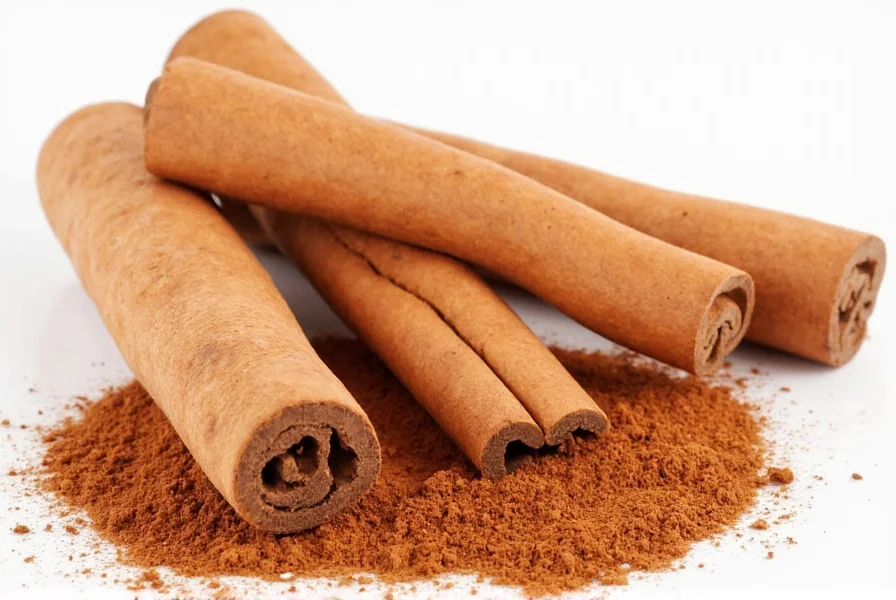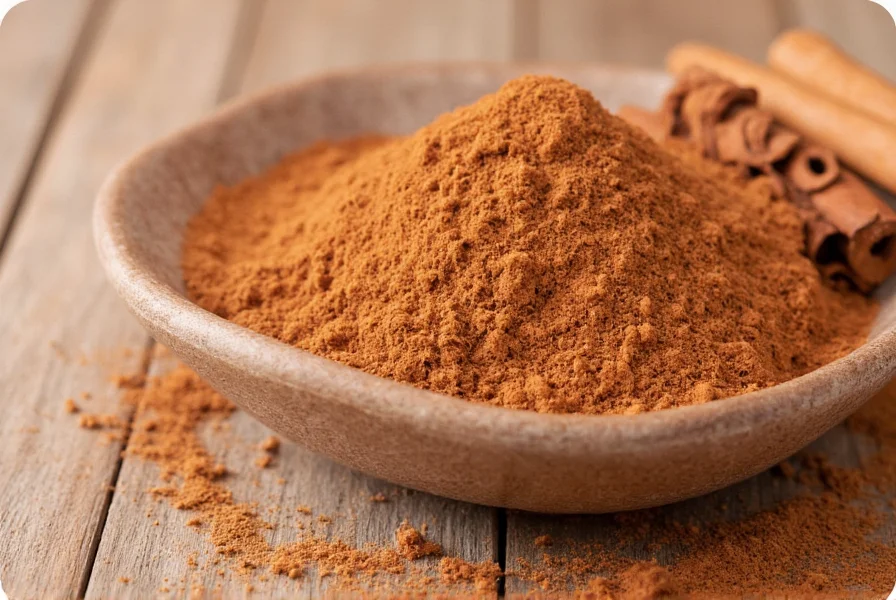Based on current scientific evidence, cinnamon does not directly cause significant weight loss. While some studies suggest cinnamon may improve insulin sensitivity and blood sugar control—factors that can indirectly support weight management—there is no conclusive evidence that cinnamon alone leads to meaningful weight reduction. Any potential benefits would be modest and should be viewed as complementary to proven weight loss strategies like balanced nutrition and regular exercise.
Many people wonder whether this common kitchen spice could be a secret weapon for shedding pounds. With countless social media posts and wellness blogs touting cinnamon's weight loss benefits, it's crucial to separate fact from fiction with evidence-based information.
The Science Behind Cinnamon and Metabolism
Cinnamon contains bioactive compounds like cinnamaldehyde that have demonstrated metabolic effects in laboratory studies. Research published in the Journal of the Academy of Nutrition and Dietetics indicates that cinnamon may improve insulin sensitivity, which helps regulate blood sugar levels. Since insulin resistance often accompanies weight gain and obesity, this mechanism could theoretically support weight management efforts.
A 2022 meta-analysis in Nutrition Reviews examined 18 clinical trials involving over 1,200 participants. The analysis found that cinnamon supplementation (typically 1-3 grams daily) showed modest improvements in fasting blood glucose and HbA1c levels, particularly among individuals with prediabetes or type 2 diabetes. However, the same review noted minimal direct impact on body weight or BMI across most studies.

What the Research Actually Shows
Let's examine what peer-reviewed studies reveal about cinnamon's potential role in weight management:
| Study | Participants | Dosage | Key Findings |
|---|---|---|---|
| Khader et al. (2021) | 80 adults with metabolic syndrome | 3g/day for 12 weeks | Modest reduction in fasting glucose (-12.3 mg/dL) but no significant weight change |
| Ziegenfuss et al. (2020) | 56 overweight adults | 2g/day for 16 weeks | Improved insulin sensitivity but no difference in body composition vs. placebo |
| Wang et al. (2023) | Meta-analysis of 18 trials | 1-6g/day (varied) | Small blood sugar improvements but minimal impact on weight metrics |
These findings suggest that while cinnamon may support metabolic health, its direct contribution to weight loss is minimal at best. The most significant results appear in populations with existing metabolic issues, not healthy individuals seeking weight reduction.
How Cinnamon Might Indirectly Support Weight Management
Though not a weight loss solution itself, cinnamon could play a supportive role in several ways:
- Blood sugar regulation: By potentially improving insulin sensitivity, cinnamon may help reduce blood sugar spikes after meals, which could decrease cravings and overeating
- Sugar substitute: Using cinnamon to flavor foods instead of sugar adds sweetness perception without calories
- Anti-inflammatory properties: Chronic inflammation is linked to obesity, and cinnamon's anti-inflammatory effects might provide indirect benefits
- Digestive support: Some evidence suggests cinnamon may support healthy digestion, which is important for overall metabolic function
Realistic Expectations for Cinnamon and Weight Loss
It's essential to maintain realistic expectations about cinnamon's role in weight management. Research consistently shows that no single food or supplement causes significant weight loss without comprehensive lifestyle changes. The most effective weight loss strategies include:
- Calorie-controlled, nutrient-dense eating patterns
- Regular physical activity (both cardio and strength training)
- Adequate sleep and stress management
- Consistent behavioral changes
Adding cinnamon to your diet might provide marginal metabolic benefits, but it shouldn't replace these foundational weight loss approaches. Think of it as a potential complementary strategy rather than a primary solution for does cinnamon aid in weight loss scientifically.
Safety and Practical Usage Guidelines
For those interested in incorporating cinnamon into their diet, here are evidence-based recommendations:
- Dosage: Most studies use 1-3 grams (approximately ¼ to 1 teaspoon) daily
- Type: Ceylon cinnamon is preferred over Cassia due to lower coumarin content
- Timing: Consuming with carbohydrate-containing meals may maximize blood sugar benefits
- Preparation: Works well in oatmeal, smoothies, or as a seasoning for roasted vegetables
Excessive cinnamon consumption (particularly Cassia variety) can cause liver issues due to coumarin content. The European Food Safety Authority recommends limiting daily coumarin intake to 0.1 mg per kilogram of body weight.

Conclusion: Where Cinnamon Fits in Weight Management
Current scientific evidence doesn't support cinnamon as an effective standalone weight loss solution. While research on cinnamon and metabolism shows promise for blood sugar regulation—particularly for those with insulin resistance—these effects translate to only minimal, if any, direct weight loss benefits.
For individuals exploring natural weight loss with cinnamon, it's important to view this spice as one small component of a comprehensive approach that prioritizes proven methods. The most effective weight management strategies remain centered on sustainable dietary patterns, regular physical activity, and behavioral modifications.
If you have specific health concerns or are considering significant dietary changes, consulting with a registered dietitian or healthcare provider is always recommended. They can help you develop a personalized plan that addresses your unique needs and health status.
Does cinnamon specifically burn belly fat?
No, cinnamon does not specifically target or burn belly fat. Spot reduction of fat is not possible through any food or supplement. While cinnamon may support overall metabolic health, reducing abdominal fat requires comprehensive weight loss strategies including calorie management and exercise.
How much cinnamon should I take daily for potential metabolic benefits?
Research suggests 1-3 grams (approximately ¼ to 1 teaspoon) of Ceylon cinnamon daily may provide metabolic benefits without exceeding safe coumarin levels. Higher doses, especially of Cassia cinnamon, may pose health risks due to coumarin content.
Can cinnamon tea help with weight loss?
Cinnamon tea alone won't cause weight loss, but it can be a calorie-free alternative to sugary beverages. The potential metabolic benefits of cinnamon in tea form are likely minimal compared to consuming the spice directly with meals, but it may help reduce overall calorie intake when replacing high-calorie drinks.
Is there a difference between Ceylon and Cassia cinnamon for weight management?
Both types contain similar active compounds, but Ceylon cinnamon ("true" cinnamon) contains significantly less coumarin than Cassia cinnamon. For regular consumption, Ceylon is safer, though both may offer comparable metabolic effects at appropriate doses.
How long does it take to see any potential benefits from cinnamon for weight management?
Most studies showing metabolic benefits used cinnamon supplementation for 8-16 weeks. However, any potential effects on weight would be extremely modest and should not be expected as a primary outcome. Significant weight changes typically require comprehensive lifestyle modifications over longer periods.











 浙公网安备
33010002000092号
浙公网安备
33010002000092号 浙B2-20120091-4
浙B2-20120091-4